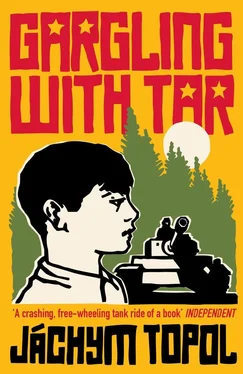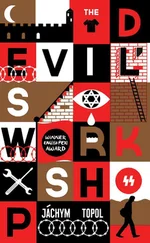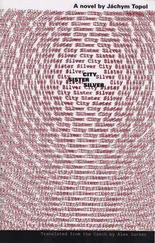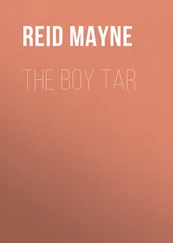‘The girl hugged him so powerfully that she was crushing his ribs. “My name’s Czechia,” she said. The wayfarer grabbed the crucifix at his throat — the priest’s gift — and the girl leapt away, as if cut by a sword.
‘The wayfarer rushed out of the cottage and he jumped on his horse and galloped away.
‘Soon he heard pounding footsteps behind him, and he heard wolves howling. They were all running after him: the old man, his son, the woman, the boy and the girl called Czechia. And now the grandfather had overtaken the horse and was blocking the way, but the wayfarer rode over him! He clasped the dragon’s egg, our wayfarer! Then the father leapt at the wayfarer, who knocked him down, his horse stamping at the dust. Then the woman grabbed her little boy, whirled him round and around in the air and hurled him. And the lad went flying and landed on the horse, and sank his teeth in it. The horse shook the lad off and stamped a hoof, then galloped onwards. And now the lad’s mother came flying through the air, howling like a she-wolf. She leapt towards the horse, but it ducked and she smashed her skull on the ground. Finally, the girl called Czechia came flying through the air, descending on the horse’s rump, just behind the wayfarer! She bit the wayfarer and the horse dropped, breathless, to the ground, followed by our wayfarer. And he clutched the crucifix at his throat, but the girl had gone. The horse was dead. And the wayfarer’s hand leapt away from the cross of its own accord — the flesh was burnt!
‘The dragon’s egg in the wolf-skin had gone! He had lost the love of Czechia, and the czar would chop off his head. He was all alone in that ill-fated land.
‘The wayfarer thought, “Am I still me? After all I’ve seen?” He didn’t know. And at that very spot he pledged to erect a church.’
I was glad he’d finished! Páta was too, I reckoned. But Mr Cimbura went on, ‘And I’ve honoured that pledge. Fair busted my guts on that church, too. Anyway, it’s Catholic now.’
Then he started mumbling something into his blankets, and grunting and groaning, and it would have been nice if he’d been quiet at last, but on he went: ‘The shooting’s died down outside, right? There, we’ve come through safe and sound.’
I looked at Páta, and Páta looked at me.
‘Okay, lads, you might be thinking I’ve been making fun of you! I’d happily show you the scars where that girl bit and scratched me, but here’s the rub — my flesh being burnt, you can’t see ’em.’ And Mr Cimbura raised himself up on one elbow on his couch of rags.
I sat down. I looked at Páta. Had he heard? Cimbura had said that he was the wayfarer: non-human, tooth-marked. It crossed my mind that we ought to kill him straight away. Then it occurred to me that if Mr Cimbura was the wayfarer, we couldn’t kill him anyway. It wasn’t going to be easy! Anyway, he was probably just talking rubbish again… I glanced at him. He was staring at me too — staring right into my soul through the candles. It gave me goose pimples all over. Mr Cimbura knew what I was thinking. He didn’t want to bite me, though he could have long before now! A thousand times. Yet he used to look after me so nice, like, when I was a defenceless kid. That was ages ago!
Mr Cimbura dropped his sharp gaze, lay back, wriggled a bit in his blankets and carried on talking: ‘Right then, for crying out loud, you black-arsed moo, get a move on with them last rites!’ And Sister Alberta stirred, though not towards Mr Cimbura; instead she came and sat with me, as if nothing had changed since the days of the soap store, except that now Sister Alberta was horribly fat and old. I was older too. I was so big I wouldn’t fit in her arms any more. ‘God brought you to us,’ she said, ‘let’s have a cuddle the like of which the world has never seen!’
Afterwards she stood up and went over to Mr Cimbura.
There was this huge silence throughout the whole cellar, because nobody was talking. Páta was also next to Mr Cimbura, and he knelt down beside him. Mr Cimbura was lying there and he was quiet, which was one for the record books. I stood up and made a move into the darkness to where I remembered the door was. I went through it and climbed the steps, along the passage and past the kitchen and the best room and, hey presto, I was outside.
Mr Cimbura’s storytelling had crumpled time. The thing is, he had us caught in his fairy story as if in a noose. This explains why I ran back out into the night. Was it the same night as when I was hiding in the plane? Or the next one? I didn’t know.
There were no lights anywhere. I spotted a cat on the roof of a house, which was odd. They don’t like to be seen. The cat shrieked and knocked a big black tomcat off the roof. He fell on the hard soil, leapt sideways and vanished into the weeds that propped up a fallen fence… Otherwise, not a soul in sight, but it was obvious there was life in Siřem… The tanks of Kozhanov’s army had to be around somewhere. I sniffed the air for a whiff of petrol and listened for the growl of engines. If I bumped into the guards unit’s sub-machine-gunners, running bent double with their Kalashnikovs at the ready and clearing the ground for a tank assault, that would be the end of me. All I could do was advance by leaps and bounds between the dark cottages, and so I got to the square, which is where I wanted to be.
Candles flickered in the wind. Lots of them had burnt right down. Some had been snuffed out by the wind.
A pile of wreathes reached up to his knees. I still remembered him in the wash-tub. The coffin stood propped against the church door. The church rose black above him, the whole building. It looked like it had been lowered down from heaven, as if hanging from the pitch-darkness. Commander Vyžlata was tied to the coffin. The lads hadn’t told me that. Perhaps they didn’t know.
His arms were spread out, tied to the coffin at the elbows. His fingers were all sticking out. So Kozhanov’s guards hadn’t been here. They’d never have left him like that, like some Lord Jesus Christ with his arms outstretched! I’m pretty sure they don’t like that kind of thing, any religious stuff. No way! They’d have taken him down, dead or alive, with the first volley, they wouldn’t care. So they were behind me, somewhere.
I didn’t look into Vyžlata’s face. Didn’t want to. But then it was inside the coffin and it was dark. All I needed was to know he was there, because apart from me there was only one person who knew where Vyžlata had been before: Margash. And only Margash knew who and what were still in the cellar.
I detached myself from the coffin’s shadow, so as to slip into the mightier shadow of the church, and scuttle down the few streets to the pond, then make myself scarce somewhere in the countryside around Siřem, but then I heard them… First, a distant grinding noise and then the rumble that tanks make as they rip up the ground. They were getting closer… Now I was being chased to the Home from Home by the tanks of Kozhanov’s army. Fortunately for me, they hadn’t sent out a scouting party on foot. On the other hand, that meant they were on the attack.
I ran past the dark and silent farm buildings that marked the end of the village, immersing myself in the slow breaking of the day, as if I were carrying it. Next I ran past a tank. Its tracks were done for. It was burnt out, sadly. It smelt of burnt flesh and vomit. I knew it was part of the ‘Happy Song’ column… The Home from Home was surrounded by a solid wall of tanks. The ‘Happy Song’ tanks had formed a circular defensive line the whole length of the hillside, and beyond the tanks with their red stars pockmarked by bullets from all the village Home Guards in the sector that went from Tomašín, Luka, Bataj and so on, there’s this barricade, a long inner defence barricade.
Читать дальше












